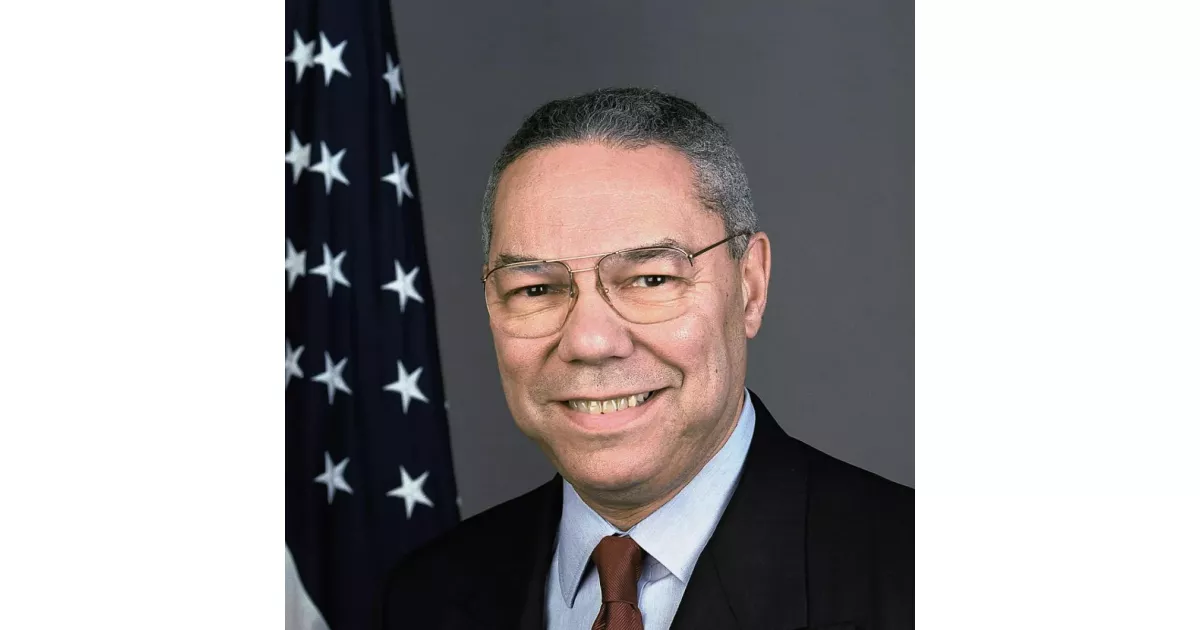Resilience and perseverance in the journey of Colin Powell. A timeline of obstacles and growth.
Colin Powell (1937-2021) was a prominent American statesman and four-star general. He served as the 65th U.S. Secretary of State (2001-2005), the first African American to hold that position. Previously, he was National Security Advisor (1987-1989) and Chairman of the Joint Chiefs of Staff (1989-1993), the highest-ranking military officer in the U.S. Armed Forces. Powell's career was marked by his involvement in major foreign policy decisions and military operations from the Reagan to the George W. Bush administrations, though his presentation to the UN Security Council in 2003 regarding Iraq's alleged weapons of mass destruction remains controversial.
1963: Wounded in Vietnam
In 1963, while on patrol in Vietnam, Colin Powell was wounded after stepping on a punji stake, shortening his first tour.
1973: U.S. Support for Chilean Coup d'état
In 1973, Powell was critical of U.S. foreign policy regarding its support for the Chilean coup d'état that deposed Salvador Allende.
September 1993: Early Resignation as Chairman of the Joint Chiefs of Staff
In September 1993, Powell's growing irritation towards Secretary of Defense Leslie Aspin led to his early resignation as Chairman of the Joint Chiefs of Staff.
October 1993: Battle of Mogadishu
In October 1993, shortly after Powell's resignation, the Battle of Mogadishu took place. The aim of the operation was to capture Somali warlord Mohamed Farrah Aidid, but it ended in disaster.
April 2001: Hainan Island Incident
In April 2001, a United States US EP-3 surveillance aircraft collided with a Chinese Shenyang J-8 jet fighter over the South China Sea. Powell's expression of "very sorry" was accepted as sufficient for the formal apology that China had sought.
September 2001: Response to 9/11 Terrorist Attacks
In September 2001, during the 9/11 terrorist attacks, Powell was in Lima, Peru. Afterward, his role became critical in managing relationships with foreign countries to secure a stable coalition in the War on Terrorism.
2003: Controversy Surrounding UN Speech and Faulty Intelligence
In 2003, Intense debate went on behind the scenes regarding what to include in Powell's speech. Claims based on faulty intelligence, such as the yellowcake forgery, were left in the speech. The administration faced criticism for acting on faulty intelligence, particularly that which was single-sourced to the informant known as Curveball.
2004: Inaccurate Evidence for Weapons of Mass Destruction
In 2004, a report concluded that the evidence Powell offered to support the allegation that the Iraqi government possessed weapons of mass destruction (WMDs) was inaccurate.
September 2005: Regret over UN Speech
In September 2005, during an interview, Powell referred to his 2003 UN speech as a "blot" on his record, expressing pain and regret.
Mentioned in this timeline

Donald John Trump is an American politician media personality and...

Bill Clinton served as the nd U S President from...

Barack Obama the th U S President - was the...

Hillary Diane Rodham Clinton is a prominent American politician lawyer...

George W Bush the rd U S President - is...

Joe Biden is an American politician who served as the...
Trending

43 minutes ago Mbappé Suffers Knee Sprain, No Surgery Expected: Real Madrid Medical Report
44 minutes ago VTI ETF Experiences Outflows Amidst AI Volatility: A Market Overview

44 minutes ago QQQ Down Amid STX Stock Price Drop: A Market Analysis
44 minutes ago Dow Plunges Amid Iran War Fears, Oil Spikes: Market Tensions Rise

44 minutes ago Rodrygo suffers serious injury, out for season and World Cup; knee exploration

2 hours ago Christa Miller shares Scrubs revival update, Jordan's reveal in new production.
Popular

Jesse Jackson is an American civil rights activist politician and...

Hillary Diane Rodham Clinton is a prominent American politician lawyer...

Jim Carrey is a Canadian-American actor and comedian celebrated for...

XXXTentacion born Jahseh Dwayne Ricardo Onfroy was a controversial yet...

Ken Paxton is an American politician and lawyer serving as...

Michael Joseph Jackson the King of Pop was a highly...
